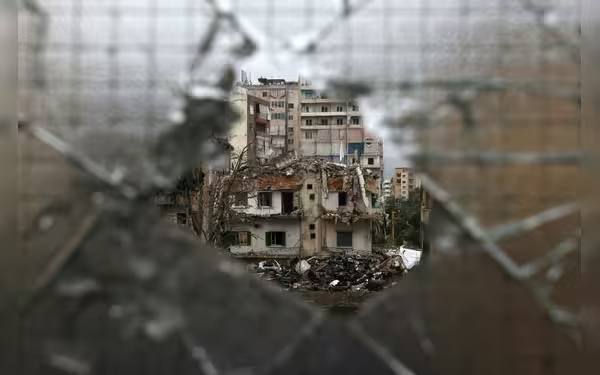Monday, December 23, 2024 07:14 PM
Ceasefire Between Israel And Hezbollah Faces Skepticism From UK Ex-Spy Chief
- Ceasefire viewed as a revival of past agreements.
- Dearlove questions long-term effectiveness of the deal.
- Iran's position may become precarious due to ceasefire.
 Image Credits: arabnewspk
Image Credits: arabnewspkUK ex-spy chief Richard Dearlove doubts the longevity of the Israel-Hezbollah ceasefire, citing historical failures and regional complexities.
LONDON: The recent ceasefire agreement between Israel and Hezbollah has raised eyebrows among experts and analysts alike. This deal, which came into effect on Wednesday, is seen as a significant yet precarious arrangement. Richard Dearlove, the former head of MI6, the British intelligence service, has expressed skepticism about the longevity of this ceasefire. He described it as a "retreaded agreement from 2006," indicating that it is not a new solution but rather a revival of past efforts that failed to bring lasting peace.
The original agreement aimed to keep Hezbollah away from the border region with Israel, with oversight from the Lebanese military and the United Nations. However, according to Dearlove, that initial deal "did absolutely nothing." This raises concerns about whether the current ceasefire will fare any better. He pointed out that while the deal may serve the interests of both Israel and Hezbollah in the short to medium term, its effectiveness in the long run remains questionable.
Dearlove elaborated on the situation, stating, "The Israelis must know how much of the infrastructure of Hezbollah they’ve taken down." Although he acknowledged that Israel has not completely dismantled Hezbollah's capabilities, he suggested that the Lebanese state might be able to reassert some authority and keep Hezbollah under control to a certain extent. However, he cautioned that the situation is fluid, and the future remains uncertain.
Moreover, the ceasefire could have implications for Hezbollah's backer, Iran. Dearlove noted that this agreement leaves Iran "exposed" as one of its allies is temporarily incapacitated. This situation could potentially escalate tensions, leading to a "direct" confrontation between Israel and Iran, especially if Iran decides to launch another ballistic missile attack.
While the ceasefire between Israel and Hezbollah may provide a temporary respite from conflict, the historical context and current dynamics suggest that it is unlikely to hold for long. The complexities of regional politics, the influence of external powers like Iran, and the unresolved issues between Israel and Hezbollah all contribute to a precarious situation. As the world watches, it remains to be seen whether this ceasefire will pave the way for a more stable future or if it will simply be another chapter in a long history of conflict.













